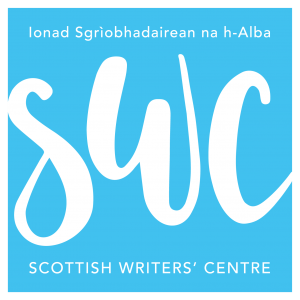A great night, with Lorn Macintyre sharing mind-bending tales of Tobermory, Oban, and Glasgow (as visited by itinerant Gaels in the 1960s). The supernatural also reared its head, with many a good tale in the pub afterwards (regarding such figures as the spiritualist medium Albert Best and the notorious Icelandic medium Indridi Indridason).
Lorn was brought up in Oban and Mull, where he was exposed to what William Faulkner called “spoken history” (a Gaelic-speaking culture of storytelling, based on the anecdotes of real people’s lives – some hilarious, some sad, some bizarre). The car ferry only reached Mull from Oban in 1962, bringing with it progress but also the process of erosion of a traditional culture. The supernatural (people seeing omens of impending death, etc.) was widespread, and accepted as normal. It would be twenty to thirty years later before it would occur to Lorn that these Gaelic stories from his childhood could be something about which he could write as the basis for short stories and novels.
The result was his Tobermory Days and Tobermory Tales, followed by Maclay Days (as he turned his attention to the city of Glasgow, to which so many young people of Mull migrated in the 1960s). The “Maclay” of the title refers to Glasgow University’s Maclay Halls of Residence, formerly located in Park Circus, the rebuilding of which – by extraordinary coincidence – the SWC’s own Douglas Thompson has just finished overseeing (following the disastrous fire which consumed the halls in 2006).
After playing a recording of Mary Ann Kennedy reading one of his Tobermory stories (about a Highland dancer from Saskatchewan), Lorn read from Maclay Days – giving us a taste of the tapestry of interwoven lives that the book skillfully evokes. Lorn revealed that 80% of the Maclay stories are true, or based on truth, and those of us who have attempted such writing know that the genius required to make ungainly truth into workable fiction is staggering. Lorn spent six months in the Mitchell Library researching for the novel, putting flesh on the bones of the memories related to him by friends and by his father.
Lorn also revealed that he is a self-confessed dance addict, and in decades gone by he might dance fifty times in a night (and knew one friend who went out dancing six nights a week for twenty years). In the 1960s, Glasgow had eleven ballrooms to Edinburgh’s five – and considerably more than London, making Glasgow the dance capital of Britain.
Lastly, Lorn read from his Snowball in Summer poetry collection, which speaks movingly of the last years of his mother’s life as she succumbed to dementia.
A powerful evening, in the company of an astute writer and an unforgettable personality.



